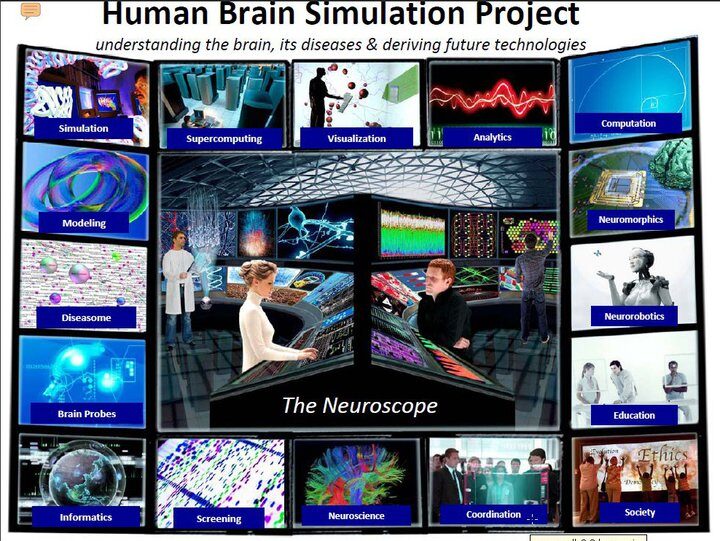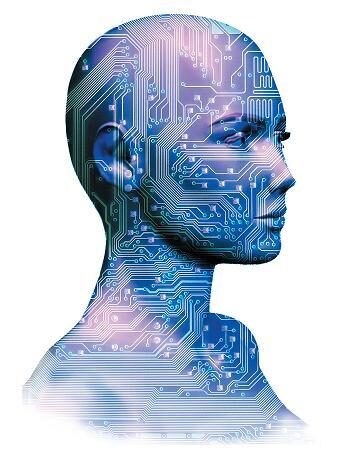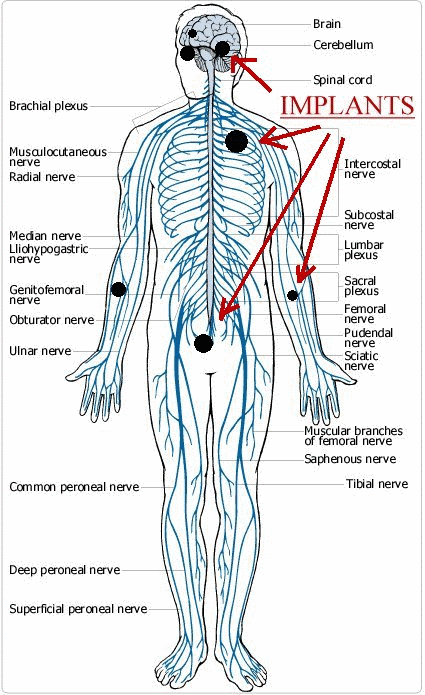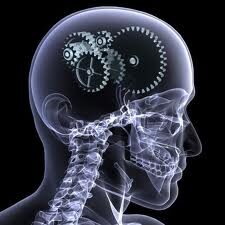
25-04-2010. MINDTECH seeks to establish a network of laymen and media. This group will be dealing with the social and ethical sides to research, development and the implementation of emerging technologies in our society.
The most interesting part are the Direct Human Brain – artifcial intelegence – Interface System technologies. MINDTECH will do extensive and thorough research into this totally new area, which at this point, is being investigated only by the few.
Implant chip in the human brain.Synthetic telepathy is communication systems built on thoughts, not speech. Multimedia communication network is based. Brain copying is performed around the clock, largely by learning computer, copying is nothing short of serious torture. No one would voluntarily give informed consent to this serious research abuse. It takes years of learning and program development to develop the new computer-brain interfaces and multimedia language between man and computer. Subjects are now against their will has been online for five years on Man-Brain-Computer-Interface.
Neurological research has progressed so far that you can hack the neural system is wireless, which means that a computer can communicate with your brain and store all your sensory experiences, and then studying your kognetiva behavior, ie, the ultimate human study. The commercial user fields are endless and it feels no need to explain the far-reaching consequences when abused. This technology brain-computer interaction has happened during the 2000’s and will revoltion our way of life.
Information and communication society is on its way directly into our brains and the ethical debate is non-existent in Sweden and must be urgently addressed in media.We are a company(MINDTECH) that works for this and have come into contact with people who are victims of these experiments. These victims have shared stories and is living in the same geographical catchment area, therefore, Solna near KI, KTH and Kista. The stories are so horrible when as laboratory animals and to test the new technology in the most macabre and perverted ways.
As intelligence or sensory “amplifiers”, the implantable chip will generate at least four benefits: 1) it will increase the dynamic range of senses, enabling, for example, seeing IR, UV, and chemical spectra; 2) it will enhance memory; 3) it will enable “cyberthink” — invisible communication with others when making decisions, and 4) it will enable consistent and constant access to information where and when it is needed. For many these enhancements will produce major improvements in the quality of life, or their survivability, or their performance in a job. The first prototype devices for these improvements in human functioning should be available in 5 years, with the military prototypes starting within ten years, and information workers using prototypes within 5 years; general adoption will take roughly about 10 years. The brain chip will probably function as a prosthetic cortical implant. The user’s visual cortex will receive stimulation from a computer based either on what computer sees or based on an artificial “window” interface.
pick up where nature left off, incorporating Google-like master maps into neural implants. This in turn would allow us to search our own memories — not just those on the Web — with something like the efficiency and reliability of a computer search engine.
By: Ellen McMcgee (Boston) and Mc gee and Mq Maguire jr. Jr (KTH Kista Stockholm SWEDEN)
First, we have to remember that all sensory data we experience is converted into electrical signals that the brain can process. The brain does a very good job of this, and we in turn experience these inputs as subjective awareness (namely through consciousness and feelings of qualia); our perception of reality is therefore nothing more than the brain’s interpretation of incoming sensory information.
Now imagine that you could stop this sensory data at the conversion point and replace it with something else.
“This in turn would allow us to search our own memories — not just those on the Web — with something like the efficiency and reliability of a computer search engine.” he postulates.
“How much would you pay to have a small memory chip implanted in your brain if that chip would double the capacity of your short-term memory? Or guarantee that you would never again forget a face or a name?”
Clearly DARPA (USA) and SÄPO (Sweden)would pay quite a lot, given that the research arm of the US military continues to fund scientific development of that exact technology. By: Anders Sandberg. Oxford U.K
In recent decades meetings, between nanotechnology, information technology, biotechnology and neuroscience have produced a new research area, which is developing new, unknown products and services. We are facing a new revolution, which are currently, of universal neurocomputing. A unique perceptual tool, not only does our conscious minds, but also imitate them, sight, hearing, taste, smell and touch.
Brain-chip.
An implant. It is an independent processor linked to the neurocomputer built to house an artifcial intelegence. The artifcial intelligence program has access to the sensory data and information in the neurocomputer, and can “read” surface thoughts of the owner (of course, access controls can be set if needed, both in the implant and the (artifcial intelegence). Having a (or several) as advisor/secretary/partner is becoming more and more common, although most people rely on an external artifcial intelegence system and a wireless neural connection. It is not uncommon for users to get a motoric shunt to give the artifcial intelegence the ability to control the body.Chips with monitoring artifcial intelegence are sometimes used for or behaviour correction in Landfall.
Moodulator
An implant of the limbic system, enabling the owners to control their moods. Normally it just sets an allowed range and a bias (e.g. towards cheerfulness or calm), but it can also induce stronger emotional states. The implant is somewhat dangerous due to the risk of addiction to extreme positive states; most users at least tend to improve their mood. Originally it was developed on Nova for treatment of certain emotional disorders, especially the rare but devastating OIAIS (Ocean Induced AutoImmune Syndrome, an autoimmune illness induced by certain poisons causing severe mood swings due to damage of the limbic system). Later more widespread use developed. There are also moodcasters, systems sending signals to the implants of people who have allowed access. Moodcasters are mainly used in virtual dramas.
Autonomous control
Enables the owner to control many aspects of the autonomous nervous system such as hunger, sleep or pain. Turning off these functions are of course dangerous, but sometimes useful. It can also act as a super-alarm clock (guaranteed to wake you up) or “homeostatic tuner” to optimise the hormone balance of the body.
Wideband Link
The implants used to achieve group consciousness. Unlike an ordinary neuro, (atrificial intelligence) inteface it connects to most of the cerebral cortex and has a much higher bandwidth. It can send and receive signals not just of primary sensory and motor information but also higher order associations and thoughts. Since each human has an individual “mental language” sophisticated translation systems and much training is required before digital telepathy is possible. Wideband links are also used by the Net Transcendence and Next Step Foundation in their experiments with expanding the human mind. One of the most controversial and interesting applications is to let software rewrite parts of the cortex; theoretically this could be the ultimate psychodesign, even if it is currently extremely crude.
Medial forebrain pacemaker
An implant in the motivation and pleasure centres that is controlled by the owner’s neurocomputer. It is illegal and very addictive: users quickly become hooked on anything that activates it. It can be used together with behaviour therapy to change habits and personality.

Thought Control – a new ethical problem! Being able to connect the human brain to a computer via electrodes open, of course, frightening possibilities. Will it be possible to control a person’s thoughts?
There are important ethical aspects of this. It would, of course, theoretically able to control brain functions and modify the human personality. For example, make them more or less prone to aggression or to increase learning ability by adding to chronic stimulation. It’s like with everything else, with the knowledge that there can use it in many ways, “says Göran Lundborg Sweden
People who are exposed without informed consent for research abuse and torture of the new technology, explained idiot when they seek help from authorities. This lack of knowledge caused by the researchers to withhold reports on the technology’s existence
——————————-
By: Anders Sandberg. Oxford U.K
BRAINCHIP FUTURE... By: Ellen.McGee and MQ Maguire Jr (KTH Kista SWEDEN)
The future may well involve the reality of science fiction’s cyborg, persons who have developed some intimate and occasionally necessary relationship with a machine. It is likely that implantable computer chips acting as sensors, or actuators, may soon assist not only failing memory, but even bestow fluency in a new language, or enable “recognition” of previously unmet individuals. The progress already made in therapeutic devices, in prosthetics, and Brain in computer science indicate that it may well be feasible to develop direct interfaces between the brain and computers.
colleague, Professor Gershenfeld, asserts that “in 5 years, computers will be everywhere; in 10 years, embedded by bioengineers in our bodies…” Neither visionary professes any qualms about this project, which they expect to alter human nature itself. “Suddenly technology has given us powers with which we can manipulate not only external reality — the physical world — but also, and much more portentously, ourselves.” Once networked the result will be a “collective intellegence, consciousness”, “the hive mind.” “The hive mind…is about taking all these trillions of cells in our skulls that make individual intelligence. consciousness and putting them together and arriving at a new kind of consciousness that transcends all the individuals.”
BRAIN CHIP FUTURE... By: Ellen.McGee and MQ Maguire Jr (KTH STOCKHOLM SWEDEN)
A collaboration with mindtech
Mindtech To this information about the revolution highlighting interdisciplinary research, without informed consent to communicate with mind- brain-computer interface.
It’s about providing information to create a general awareness that leads to an ethical debate about this technology. This will hopefully lead to a legislation against the misuse of technology.
It is also about identifying who or what in Sweden who have illegally engaged in research on people under torture forms.
Mindtech cooperate with the media, church and victims of this research.
Contact us via the contact form.
By: Magnus Olsson / SWEDEN
Research & Progress of computer chips in the brain!
Of Susanna Radovic from F & F 2009. I remain the same person ony a part of my brain is replaced by a computer chip?
If it were possible, would you have to implant a computer chip in the brain that helped you to remember better? Or to concentrate long periods at a time, or smoothing any mood swings?
Today you can improve and modify the damaged cognitive and mental ability of medical means. But scientists are also on track to develop “brain prosthesis”, that is, artificial implants that can take over a damaged brain function. If Alzheimer’s disease has damaged the part of the brain that is responsible for storage of new memories, would simply be able to replace it with a prosthesis, a computer chip that works on the same principle as the brain itself and that can communicate with the brain’s nerve cells. Similar procedures could also replace other parts of the brain with artificial prostheses.
The development of new methods in medical research raises many ethical problems. Such is the case also with brain implants. But chip in the brain raises other philosophical questions, those related to the ego nature, personal identity, consciousness and free will.
When replacing a part of my brain with an implant will I become a different person? Or rather a robot? Will I be aware that I have a partial artificial brain, or I turn into a zombie? What happens to my free will – can I control my prosthesis or denture, which will govern me?
Research on brain prosthetics have been going on for decades. As early as 1964 placed Jose Delgado, neuroscientists at Yale University in U.S., Electrodes in the heads of both animals and humans with spectacular results. Before a stunned audience got Delgado, by simply pressing a button, a bull to stop an attack and calmly turn back. In his hand he had a remote that was connected to the electrodes inside the head of the bull, and a signal to the bull’s brain Delgado could get it to stop.
Could the same technology could be used to control people’s behavior? Is it possible to get a man to do anything against her own will by stimulating the brain in this way? Delgado performed similar experiments on humans, and when asked teach one subject in the laboratory Delgado as saying: “I suppose, Doctor, that your electricity is stronger than my will.”
False and true signal
To have free will can be described simply as the man himself has to decide over their own actions. In this case it seems rather like governing a subject’s or animal’s “and human” on the other hand, we think that’s not the fact that we can not help but pull on the lower leg on someone beats us on lap is a sharp restriction of our free will.

BY: Magnus Olsson SWEDEN 3/5 2010













